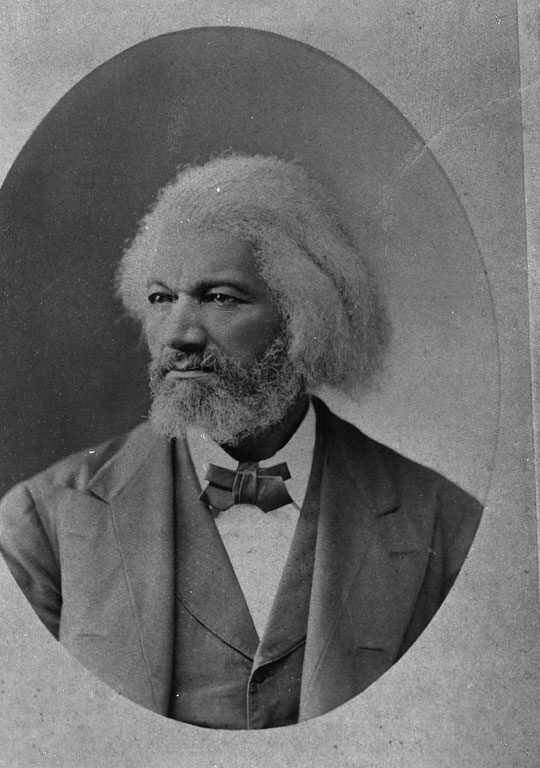Douglass, Frederick Sylvester North, 1818-1895
Douglass wrote his famous autobiography, Narrative of the Life of Frederick Douglass, in 1845. The publicity from the book spurred a move to England, where Douglass could lecture and avoid being returned to slavery. He wrote and spoke about his experiences as a slave and his desire for African American equality. In 1846 a group of Douglass's English friends collected enough money to purchase his freedom, and Douglass moved to Rochester, New York, to begin publishing the North Star. He worked to aid fellow slave refugees on the Underground Railroad. He also petitioned for the freedom of slaves in Union and border states and for the right of blacks to enlist in the army during the Civil War. Over the years, he shifted his tactics away from the non-violent and apolitical methods of William Lloyd Garrison and came to support Abraham Lincoln, the Republican Party, and active recruitment of black soldiers. After the Civil War he moved to Washington, D.C., where he was appointed the city's marshall in 1872 and its recorder of deeds in 1880. He also served as the U.S. minister to Haiti from 1889 to 1891. Sources: Thomas, Sandra. "A Biography of the Life of Frederick Douglass." http://www.history.rochester.edu/class/douglass/home.html#contents. 18 February, 2005. |

 Frederick
Douglass was born a slave on a farm in Maryland. His mother was a
slave; his father was white. In 1826 he was sent to work in Baltimore
and learned to read from his new master's wife, Sophia Auld. At eighteen,
he was hired out as a caulker, which enabled him to save enough money
to pay for his passage north. On September 3, 1838, Douglass escaped
from Baltimore to New York City by train. Douglass's fear of roaming
slave catchers led him to relocate to New Bedford, Massachusetts.
There he joined the American Anti-Slavery Society and lectured about
his experiences as a slave. William Lloyd Garrison was so impressed
by these lectures that he hired Douglass as an agent for the Society.
Frederick
Douglass was born a slave on a farm in Maryland. His mother was a
slave; his father was white. In 1826 he was sent to work in Baltimore
and learned to read from his new master's wife, Sophia Auld. At eighteen,
he was hired out as a caulker, which enabled him to save enough money
to pay for his passage north. On September 3, 1838, Douglass escaped
from Baltimore to New York City by train. Douglass's fear of roaming
slave catchers led him to relocate to New Bedford, Massachusetts.
There he joined the American Anti-Slavery Society and lectured about
his experiences as a slave. William Lloyd Garrison was so impressed
by these lectures that he hired Douglass as an agent for the Society.